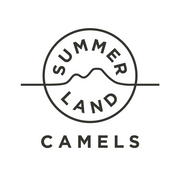Celebrating Women in Science - 2022
This year, The International Day for Women and Girls in Science is Friday 11 February 2022. Our team works with a number of scientists, one of whom is the amazing Dr Nidhi Bansal.
Dr Nidhi Bansal is an Associate Professor, Food Science & Technology, School of Agriculture and Food Sciences (SAFS) | Affiliate, School of Pharmacy | Discipline Head, Food Science & Technology | SAFS Teaching and Learning Chair at The University of Queensland.
To celebrate Women in Science, we interviewed Nidhi about her journey to date and what she loves about her work.

When did you decide that you wanted to work in the field of science?
I always had an inclination for maths and science. However, when I got involved in a science project on the topic of cloning in Yr 9, that’s when I knew that I wanted to work in a science field.
How do you describe your role/ what you do when you meet someone new?
I am a food scientist with particular interest in milk and milk products. My research focuses on harnessing the biological and immunological goodness of milk to serve requirements beyond simple nutrition.
What do you love about your job?
I love the variety of work we do and the freedom to pursue research direction of my own interest.
What is one of the challenges?
One of the main challenges is time management. I get too close and personal to my research and it then makes it hard to make time for things other than work in life.
Can you briefly explain the work that you have done in conjunction with Summer Land Camels?
Camel milk is an increasingly popular alternative to bovine milk around the world due to its reported nutritional properties and its potentially therapeutic benefits. Although Australia is home to one of the largest dromedary camel herds in the world, studies of Australian camel milk are lacking. We have worked with Summer Land Camels to provide a comprehensive understanding of the physicochemical properties of Australian camel milk, with a primary emphasis on proteins, and to investigate a number of dehydration methods for the production of camel milk powder.
The major nutritional components, physical properties and whey protein profiles of Australian camel milk samples collected over four seasons were analysed for variations due to season, milking frequency and yield. We have developed a highly sensitive, high-throughput, fluorescent method for the determination of activities of enzymes with antimicrobial properties in camel milk, including xanthine oxidase (XO), polyamine oxidase (PAO) and lactoperoxidase (LPO).
Finally, to increase the potential availability of camel milk, and its storage and transportation, camel milk powders were produced.
What particularly interests you about Camel Milk?
Its potential as an alternative to bovine milk in enhancing human health.
Do you see that scientific work done to explore the properties of Camel Milk will make a difference to humans in the future?
Yes. Camel milk has potential to serve requirements beyond simple nutrition.
What would be your advice to a girl or young woman who is interested in a career in science?
A career in science has boundless potential. Don’t be intimidated in pursuing your dreams!


4 comments
You are a proud worthy daughter. Have been topper always while persuing your studies. You do your work with strong determination.You have always been a challenge to challengers.
Wish you all success to be a shining star always.